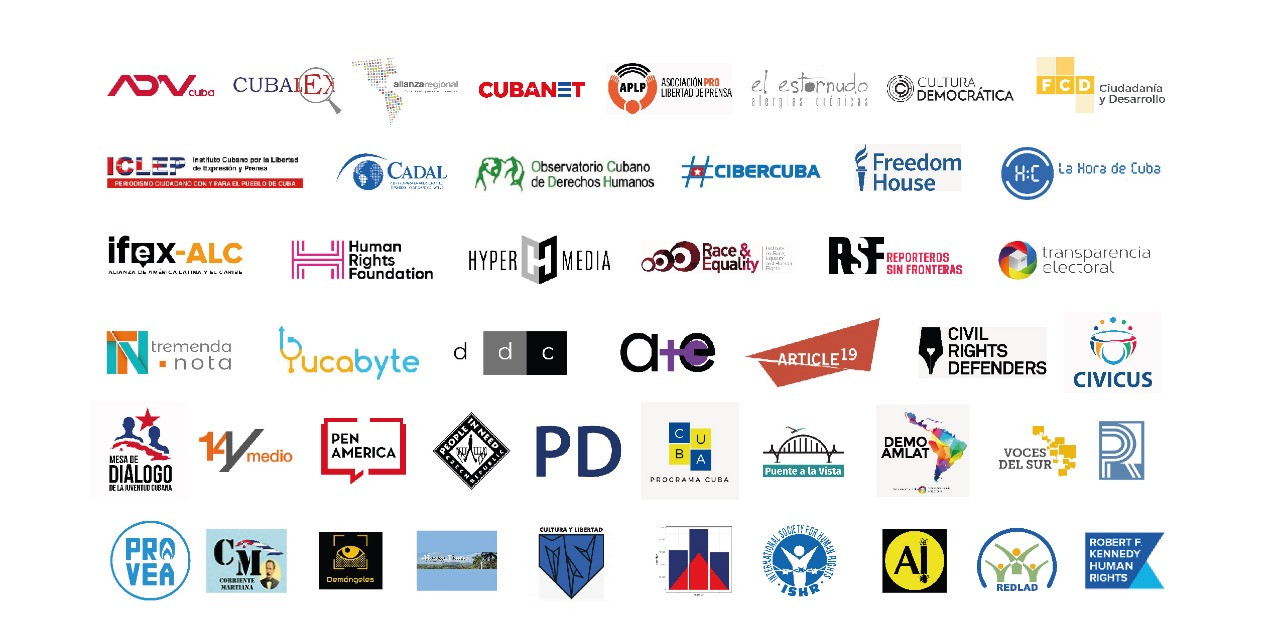Joint Statement on Cuban Legal Decree 370 and Limits on Freedom of Expression
Published: May 6, 2020 Reading time: 5 minutes Share: Share an articleThe undersigned civil society organizations express our profound concern and condemnation of the persecution against independent journalists and civil society actors in Cuba. This persecution has increased since the beginning of the year, particularly during the health crisis resulting from the coronavirus pandemic.

Although repression of freedom of expression and freedom of press has been long-standing and systematic, the current wave of repression has been intensified by the application of Legal Decree 370 “ON THE COMPUTERIZATION OF CUBAN SOCIETY,” in force since July 4, 2019.
At least 30 people have been subjected to interrogation, threats, and seizure of work equipment (especially that of journalists) for broadcasting their opinions on social media, 20 have been victims of 3,000-peso fines (120 US dollars), an amount triple the average monthly salary. Failure to pay these fines constitutes a crime punishable by six months in prison, a systematic approach that has enabled the Cuban State to sentence 7 civil society actors who are currently in prison.
We are particularly troubled by the arbitrary citations and detentions occurring during this pandemic, as they also contradict the recommendations of the World Health Organization to promote social distancing.
These facts demonstrate that the rights enshrined in the Cuban Constitution, but which have not been ratified with supplementary legislation, are merely empty words. Regarding freedom of expression, Article 54 of the Constitution states: “The State recognizes, upholds, and guarantees individuals’ freedom of thought, belief and expression,” and Article 55 asserts that “freedom of press” is a right that “is exercised in accordance with the law and to the good of society.” Additionally, this article establishes that “The principal means of social communication, in any of its forms and on any of its mediums, are the socialist property of the people or the political, social and grassroots organizations; and they are not subject to any other type of ownership. The State establishes the principles of organization and operation for all social media.”
We understand that these constitutional principles are highly contradictory. Initially, they recognize the freedoms of expression and press, and immediately thereafter, they restrict their exercise. In accordance with the Constitution, Legal Decree 370, specifically Article 68, Subsection i), vaguely establishes as a violation the act of “spreading information contrary to the common good, morals, decency, and integrity through public data transmission networks.” This clause contravenes the standards of freedom of expression and restricts this right based on objectives that are illegitimate according to the International Declaration of Human Rights.
The new Cuban Constitution, Legal Decree 370, and the actions of the Cuban State deeply contradict Article 19 of the International Declaration of Human Rights and Article 19 of the International Covenant on Civil and Political Rights (ICCPR), signed by Cuba on February 28, 2008 but not since ratified. This framework, under which the Cuban State can sanction the use of information and communication technologies, inhibits the exercise of freedom of expression using such tools and platforms. Furthermore, it represents a real and ongoing threat of punishment for practically any opinion expressed that could be classified, at the State’s discretion, as a legal violation and lead to imprisonment. Additionally, this lack of predictability has a prohibitive and intimidating effect on the collective dimension of freedom of expression and assembly.
According to Freedom House, Cuba is the country with the least freedom on the net in the Americas and the fourth worst in the world, among the 65 countries monitored. According to the CIVICUS Monitor, which tracks the freedoms of association, expression and peaceful assembly, its civic space is rated as "closed".
In 2019, the UN Special Rapporteur on the promotion and protection of the right to freedom of opinion and expression expressed his concern about the diverse mechanisms of repression in Cuba. In his 2019 report, the Inter-American Rapporteur for Freedom of Expression outlined the systematic persecution of independent journalists who publish information and opinions on topics of public interest and in his statement on April 18, 2020, he expressed his concern with restrictions on freedom of expression and access to information in the State’s response to COVID-19, highlighting the cases of journalists fined under Legal Decree 370.
To the European External Action Service (EEAS), we urge you to follow the stances and explicit mandate of your Parliament regarding the Agreement of Political Dialogue and Cooperation with Cuba, requesting that legal reforms be made to guarantee the freedoms of press, association and demonstration. We also incite you to actively support the civil society groups and individuals defending human rights in Cuba.To the United Nations Human Rights Council and the Office of the High Commissioner, we petition you to make a public declaration recommending that the Cuban State revise its legislation and abolish any norms that restrict freedom of opinion and expression.
We appeal to the General Assembly of the Organization of American States (OAS), to take a stand and apply the same standards as required for all of the countries in the region, based on the reports of the IACHR on the human rights situation in Cuba. Cuba is a member state of the OAS and has not denounced the Charter. It assumed an obligation when it signed the Inter-American system’s instruments on human rights, and its current suspension does not release it from complying this obligation.We reiterate our full solidarity with the independent journalists and civil society actors persecuted for exercising their freedom of expression.


